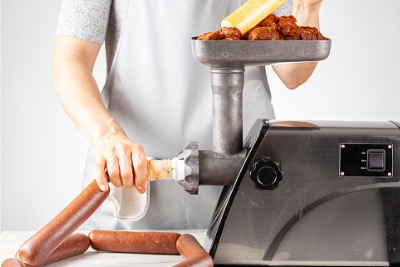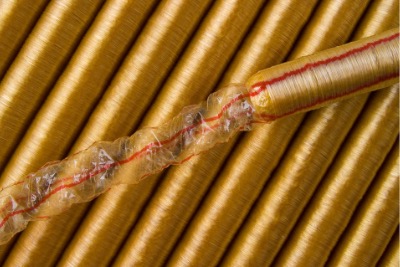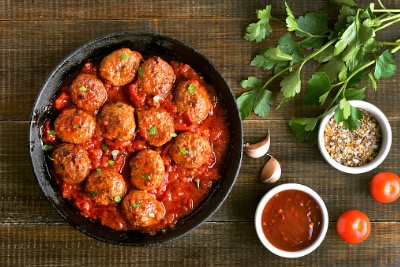
What are Halal Sausage Casings?
A few days ago, ISA received an inquiry from a Halal consumer. “I want to make my own sausage but I have no idea where to find Halal casings.” Fortunately for this home chef and others, there are several Halal casings options out there.
The World of Sausage
There are many types of sausage out there. And many, like the Middle Eastern “awarma” or “dammi” or certain type of Italian sausage do not require casings. They can be used loose, like spiced up ground beef or lamb. They can also be in patties, like small 1- or 2-ounce burgers.

There are literally hundreds of kinds of sausages around the world. Every country has at least one type of sausage that differs from others. Some countries, like the USA and Germany have dozens of types of sausage. Most sausage is made from ground meat. In Europe, North and South America, sausage is made primarily with pork or pork products.
Halal sausage can be produced from Halal meat, poultry, fish and plants. The sausage maker simply follows traditional recipes and processing methods. For example, if a home chef wanted to make Halal breakfast sausage patties, she/he would simply mix ground beef, chicken or turkey, with spices, peppers and brown sugar, form them into patties and fry them like small burgers.

Franks and breakfast links are similar, but the meat mixture needs to be stuffed in a casing. The casing will hold the meat together and form it into a nice, neat cylindrical shape. Casings are typically made out of animal intestines or skin. Casings can also be artificially produced from ingredients like collagen or cellulose.
Where to Find Halal Casings
Most people use Halal sheep casings to make sausages and franks. You can find sheep casings on Amazon. There is also the option of buying Halal fish casings. Fish casings are a relatively new development that will likely grow in demand as consumers become more aware of them. Recently, many people have been using vegetarian or vegan casings to produce sausage. Plant based glycerin, starch and sugars are the main ingredients in vegan casings. Some are made out of algae. Vegan casings are purchased by both home chefs and companies. Vegan casings are growing in popularity.

To prepare sausages, links or franks, the home cook must soak the casings in vinegar and water, and then attach the casing to a sausage stuffer. The stuffer will fill the casing with the meat mixture like a balloon is filled with air and tied at the end. The sausages are then heated and ready to consume or store.
Packaged Halal Sausage
For those who would rather purchase sausages from the supermarket, they are advised to look on the package for what the casings are made out from. For example, many people think they are eating 100% chicken sausages, when in fact the casings are made out of pork.

To avoid this scenario, read the ingredients or look for the Halal logo on the package. There are also several Halal food producers that make franks, hot dogs, and a variety of sausage. At ISA, we conduct a detailed analysis and qualification of several sausage products and their ingredients. In addition, we inspect manufacturing facilities as part of the Halal certification process.
This helps to ensure that sausage and other prepared food products are qualified as Halal and fit for Muslim consumption in accordance with Islamic law. This is how consumers can feel confident and reassured that the sausage products are indeed Halal.
